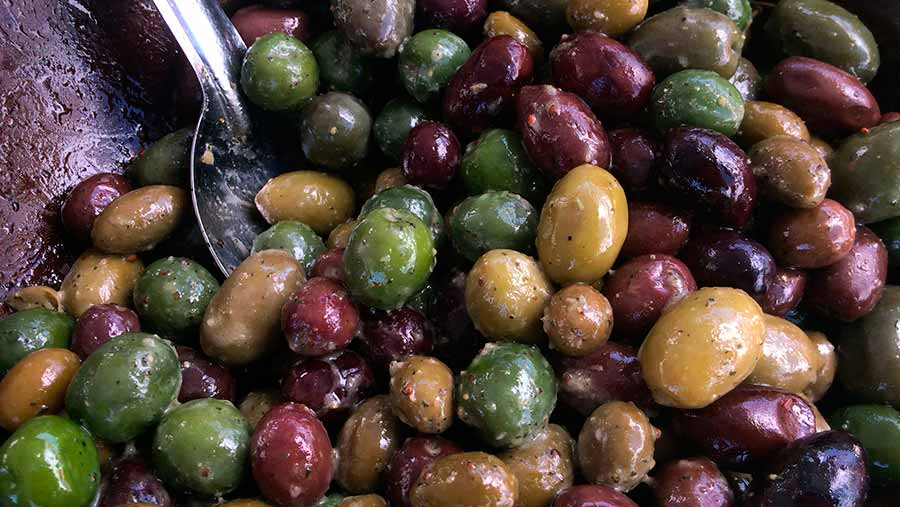Opinion: Imported goods give the industry a healthy challenge
It must have been a frightful shock for Brexit Britain to discover that, according to recent statistics, 35% of the food we eat is grown by foreigners.
Can you imagine? I bet they don’t even wash their hands when they go to the toilet.
Thank goodness, now that we are free of that tyrannical Brussels red tape, we can shut our borders and at last be allowed to enjoy home-produced delicacies such as local turnip rather than those awful Italian olives we were being forced to buy.

© Chameleons Eye/REX/Shutterstock
Finally we will be spared the misery of Spanish oranges and be free to make a Great British fruit salad full of yummy redcurrants, crab apple and parsnip instead. It will be great. Just like the good old days.
 Matthew Naylor is the MD of Naylor Flowers,a business that grows cut flowers and potatoes for supermarkets.
Matthew Naylor is the MD of Naylor Flowers,a business that grows cut flowers and potatoes for supermarkets.All this talk about food self-sufficiency coupled with a weak pound and a racist consumer base is great news for us British farmers.
The domestic market will be crying out for more lamb, milk and gluten next year. I would urge every reader to waste no time in getting on the waiting list for the new model Land Rover Discovery and offering extremely high rents for short-term FBTs. Nothing can possibly go wrong.
Clearly my mood has not improved since my last column and I am being sarcastic. In reality, I am not expecting a sudden surge in demand for what we produce. Personally, I’m not hugely concerned about fair foreign competition.
Imported goods give the industry a healthy challenge and can bring security, variety and excitement into to our lives.
There is a passage in David Richardson’s excellent autobiography where he vividly describes the first time he saw a banana. He grew up with food rationing and the country he describes sounds a good deal greyer than the one we currently occupy.
I don’t want to live in a country where a child can’t pretend to shoot his sister using a banana as a pistol. The fact that tropical fruit brings trade to poor farmers with few other opportunities is hardly a side effect.
As I see it, there are two main reasons why we do not produce more of our own food. One is our climate. Sunny countries have a big advantage in terms of what they can grow and their cost of production. We can’t do anything about that.
The other reason is that British farmers are not good at producing the things consumers want.
They produce the same old things they always have and then believe they can bully consumers into buying them with sentimentality and jingoism.
UK farmers need to be more innovative and to focus on that which we can do competitively.
This will not just improve our level of self-sufficiency, it will also help us to develop export opportunities. My own business endeavours have often involved international trade.
My first profitable venture, in my 20s, was washing and packaging salad potatoes from Israel when British new potatoes were out of season. When this ceased to be sufficiently profitable, I developed a cut flower business.
I focused on crops that grow well in our climate and now we export tens of millions of daffodils each year. Unfortunately, many British farmers have failed to think internationally.
They are not world-class in what they produce. This is why they feel threatened by imported goods.
A global market places power and opportunity in the hands of consumers and entrepreneurs rather than in the hands of politicians. I consider that a jolly good thing.

